MAN WITHOUT A STAR (1955)
Two cowboys in 19th-century Wyoming find themselves caught in the middle of a land dispute which turns violent.
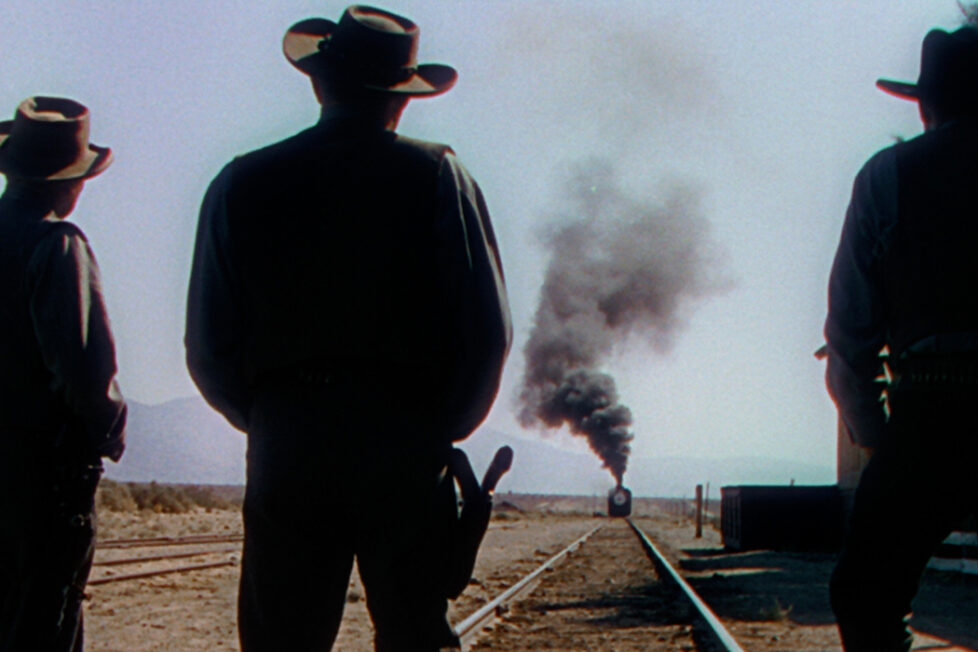
Two cowboys in 19th-century Wyoming find themselves caught in the middle of a land dispute which turns violent.


The absence of actual cows is frequently notable in cowboy movies, but they’re at the heart of King Vidor’s Man Without a Star and play a key role in its climax. This is an uneven film, seemingly unsure whether it’s a comedy or drama, but along the way it provides a more thorough exploration of the issues that led to “range wars”—disputes over land usage in the Wild West—than many films which use them simply as a pretext for gunslinging. And it’s also unusual in allowing us to see both sides of the argument. Indeed, the central character played by Kirk Douglas even changes his mind about the issue! The world here isn’t divided into white hats and black hats.
The place is Wyoming, the time unspecified—but presumably the 1870s or 1880s because a railroad link to Kansas City is already in place and there’s no mention of the Civil War. Man Without a Star may be partially based on the so-called Johnson County War of the late-1880s/early-1890s (as were many films, including The Redhead from Wyoming just a couple of years earlier), but only in the big picture rather than the detail. Indeed, it also bears only a passing resemblance to Dee Linford’s source novel of 1952. (The novel was again filmed in 1968 as A Man Called Gannon with Anthony Franciosa in the Douglas role.)
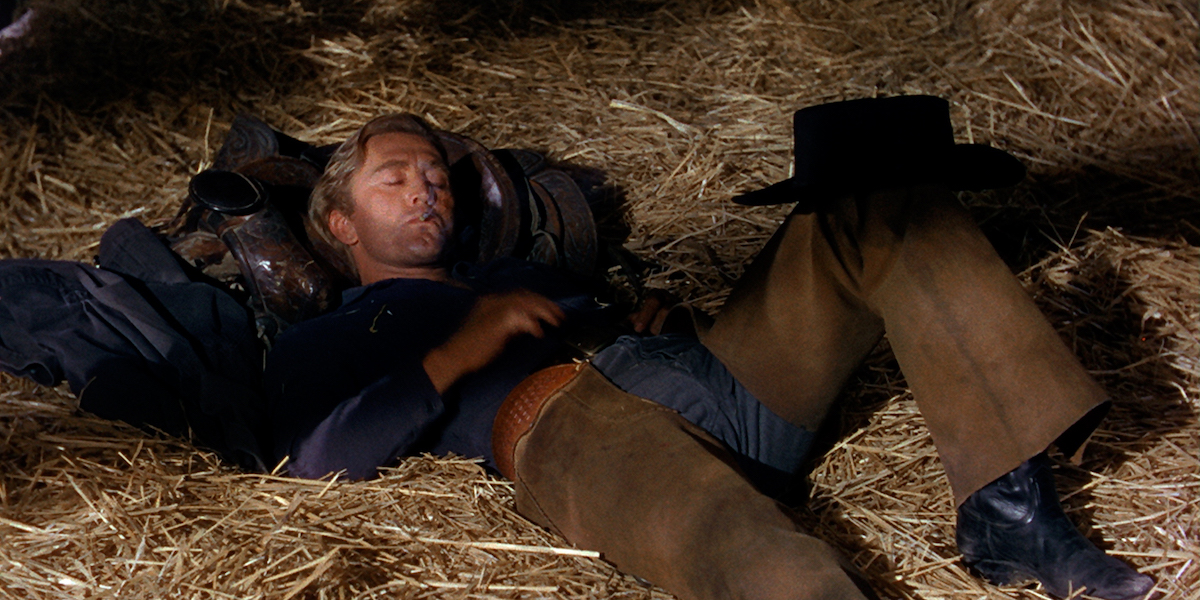
We meet Douglas’s character, Dempsey, on a train he’s riding as a freighthopper. A younger man doing the same thing, Jeff (William Campbell), is beaten up by a guard but Dempsey gets him back on board and the two form a friendship. Dempsey soon saves Jeff again when they and the other riders are rounded up by a sheriff looking for the killer of a crew member: Jeff is accused, but Dempsey proves the villain was another man.
In the town where they disembark, Dempsey runs into Idonee (Claire Trevor), a woman from his past who’s implicitly a prostitute and/or madam—though it’s not quite spelt out—while Jeff carries on getting into scrapes. Soon the pair find work at a ranch owned by Reed (Jeanne Crain), and though a buddy movie seems to be developing for a while, as Dempsey teaches the novice Jeff the ways of the cowboy, the mood grows darker as they become caught in a dispute between Reed and other local ranchers.
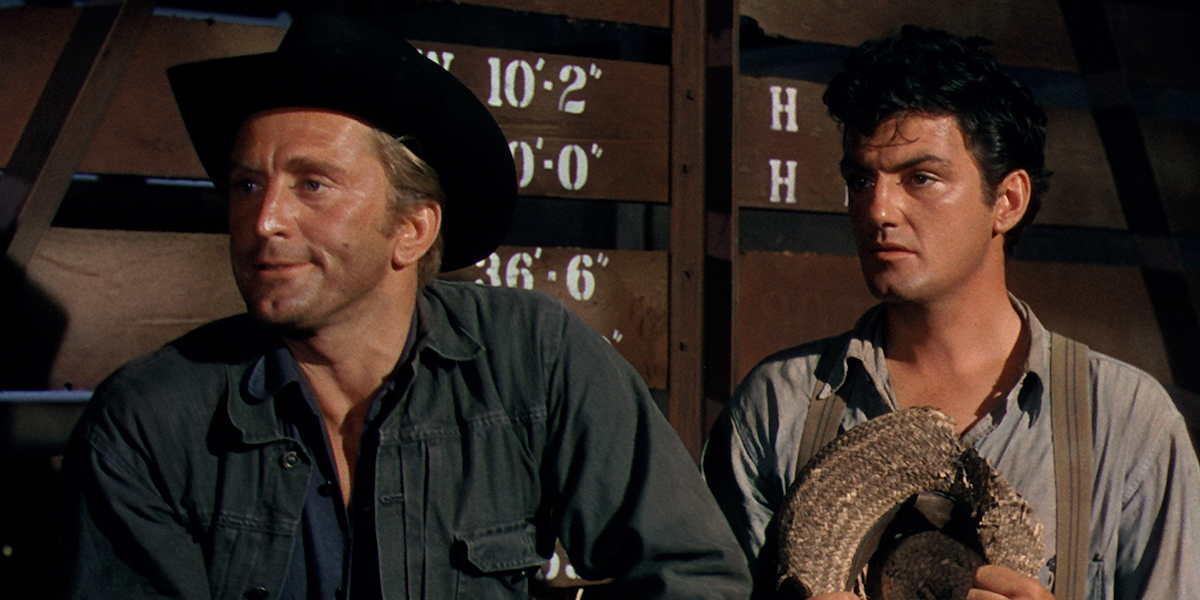
Reed has a huge herd of cattle, 10,000 strong, far more than her (male) counterparts. She’s planning to acquire thousands more, too, and to graze them on land which the other ranchers want to reserve for winter feed. Legally she may be within her rights—the land belongs to nobody—but is she being reasonable?
Things grow tenser when the male ranchers fence off the disputed area with barbed wire, to Dempsey’s intense dislike (“when the wire comes in, there’s fighting and killing”), and then escalate into outright conflict after Reed brings in a gang of toughs to take back control of the situation. “There are two kinds that drive the trail—them that knows cows and them that knows trouble,” an older cowboy says at one point. And these men she introduces to the equation are definitely of the troublesome type.
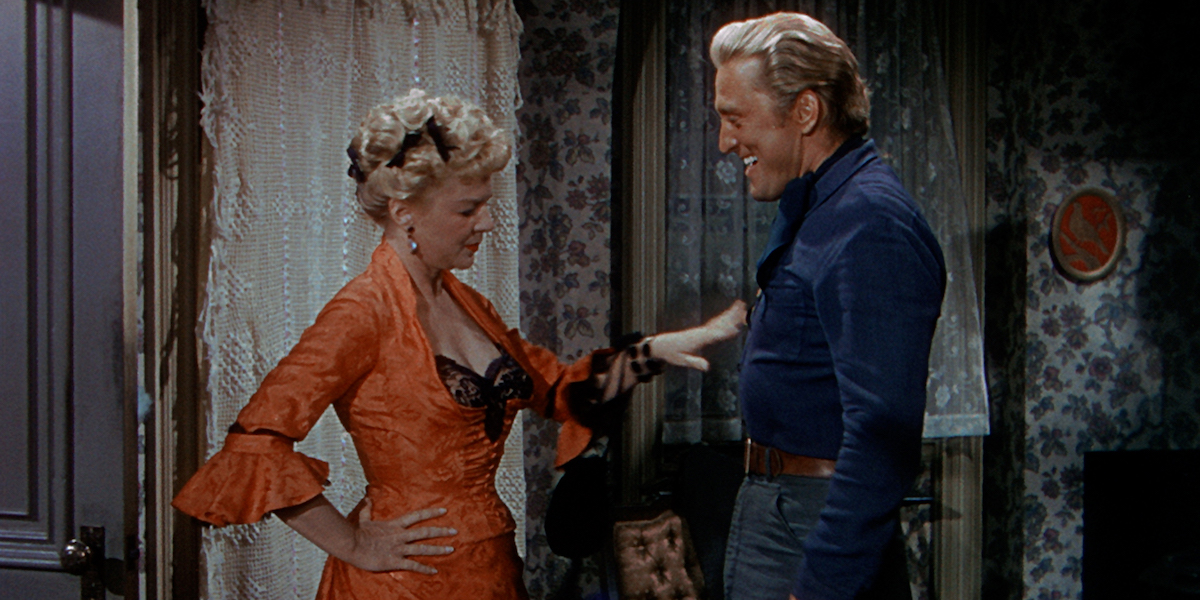
Similar storylines can be seen in many westerns, of course. What’s interesting in Man Without a Star is the way the film gradually rearranges our sympathies, as well as Dempsey’s. “Pick a star and follow it,” he advises Jeff. “Of course, you gotta be sure it’s the right one.” But which is the right one, and where does following it lead you? The title here surely has a double meaning: not only does Dempsey have to choose a star to follow, but he also has to fight for justice as a private citizen, not a sheriff with a star on his chest.
At first, we side with Reed, assuming she’s an underdog outsider and woman challenging the well-established, older male ranchers. And so does Dempsey, also flirting with her as the genre demands. But we come to realise she’s greedy and uncautious, and her refusal to manage the land for everyone’s benefit could lead to a tragedy of the commons. Man Without a Star rhapsodises about the open range, initially, but eventually comes down on the side of the fences.
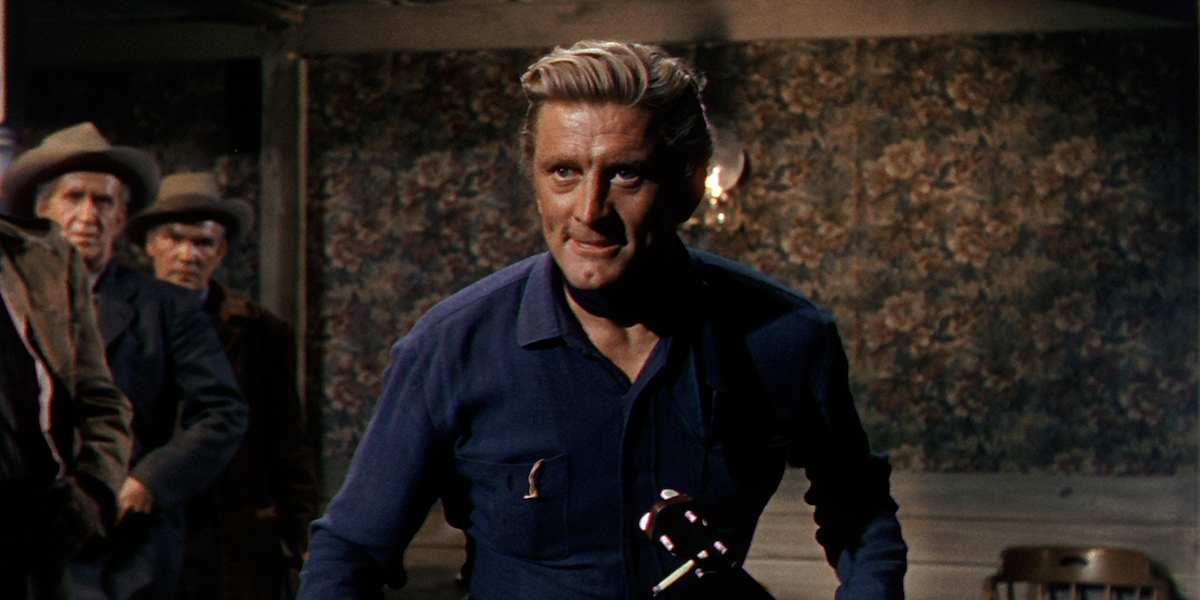
Similarly, the naive and wide-eyed Jeff—little more than comic relief at the beginning, longing to be known as “the Roping Kid” despite his inability to use a lasso—starts to display a much less appealing side as Reed draws him closer to her. A turning point in the film is the moment where Dempsey, who hitherto has protected Jeff in the many fights he gets into, stops doing so: the buddy has become the enemy.
Man Without a Star isn’t without its weaknesses. The narrative is overly complex, the hand-to-hand fighting is thoroughly unconvincing, Campbell as Jeff is obviously a ‘Hollywood actor’ rather than a young man in the Wild West, and some viewers object to Douglas accompanying a singalong on the banjo—although I differ because, as with other comic scenes, it might jar but it’s irresistibly entertaining in its own right.
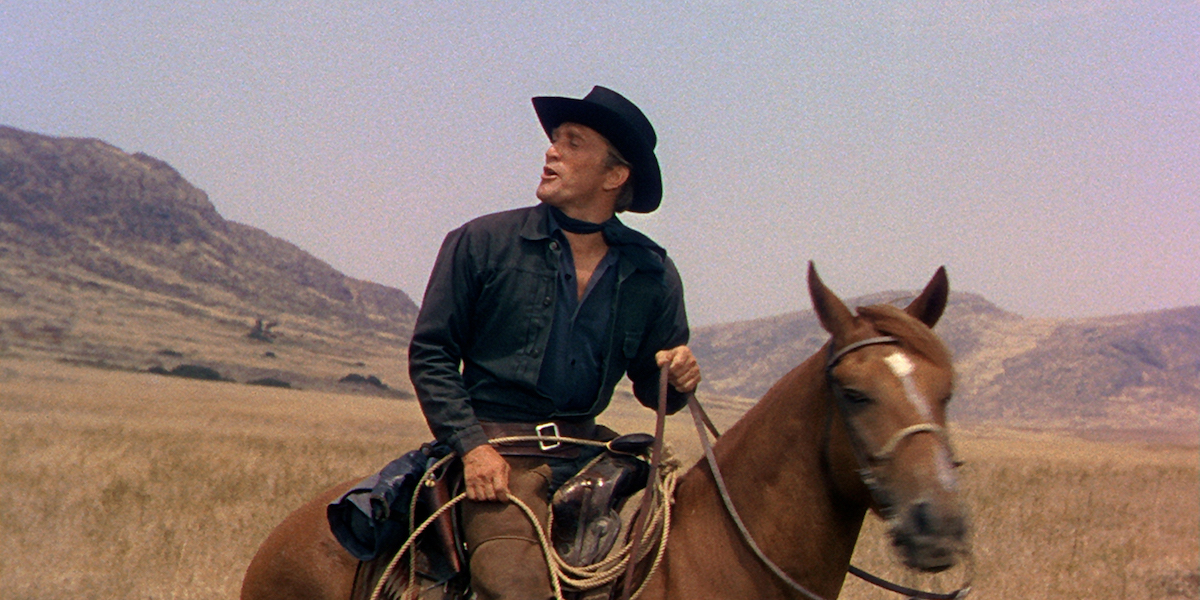
And there’s much to like. The prairie setting makes a change from the predominantly southwestern locations of so many westerns; the scenes where Dempsey teaches Jeff to shoot (“twirling a gun never saved a man’s life”) are beautifully timed two-handers; and some of the comedy is imaginative (Idonee is shocked at the idea of a bathroom inside a house, while the comment that one cowboy is “real partial to Texas men” is surely a double entendre…). Among the more dramatic episodes are three impressive scenes involving the barbed wire itself, including a thrilling stampede.
Douglas, already a big name by the time of Man Without a Star and looking younger here than his nearly 40 years, dominates the film with a bravura physical performance (in defeat as much as triumph) as well as showing off a talent for perky comedy: not just in the more slapstick scenes but also in quieter ones—like when Dempsey plays at Reed’s dressing table. He clearly relishes the role, and played an active though uncredited part in producing the film; his own production company’s first movie that same year would be another western, The Indian Fighter (1955).
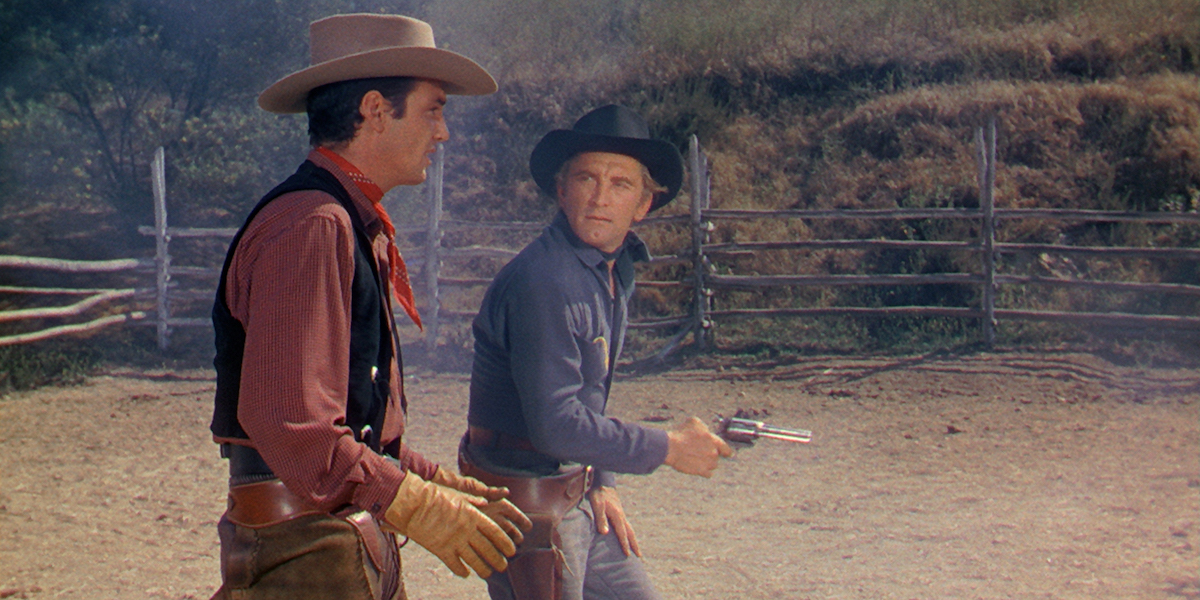
Jeanne Crain also impresses in the role of Reed, a strong woman but not an over-assertive western cliché, certainly no heroine but not quite a villain either. Wyoming was the first state to give women the vote, adding a (perhaps unintended) historical dimension to her position as a pioneering woman in a man’s business world.
Richard Boone as Miles—one of the toughs hired by Reed—is the best of the out-and-out baddies. An effective score of many different moods (upbeat, whimsical, idyllic) is contributed by Hans J. Salter and Herman Stein; both composers being more associated with sci-fi and horror, although Salter had produced the score for the highly-regarded western Bend of the River in 1953.
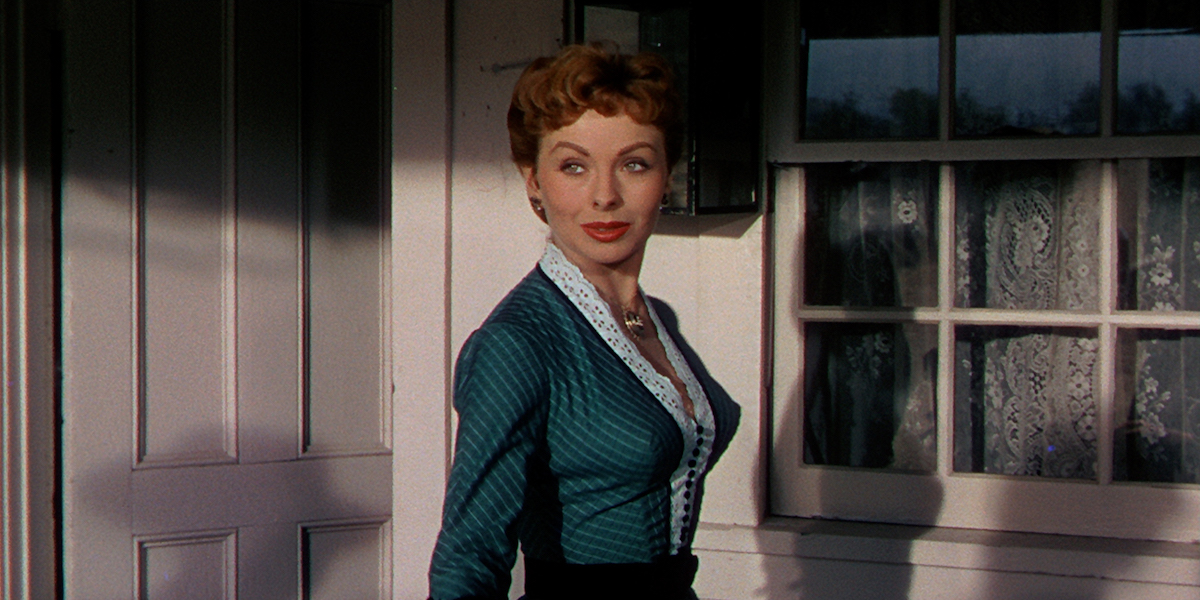
Man Without a Star was one of the last movies from King Vidor, who’d started directing in the silent era. Though less wildly melodramatic than his western Duel in the Sun (1946), its too-frequent tonal changes mean that it is not completely convincing as a whole, but both the comic elements and the range-war drama taken separately are successful.
Hitherto available only on DVD in the UK, it makes a worthwhile addition to Eureka’s ‘Masters of Cinema’ series which will be a must-have for Douglas fans as well as offering some interesting variations on familiar themes for western aficionados.
USA | 1955 | 89 MINUTES | 2.00:1 | COLOUR | ENGLISH


director: King Vidor.
writers: Borden Chase & D.D. Beauchamp (based on the novel by Dee Linford).
starring: Kirk Douglas, Jeanne Crain, Claire Trevor, William Campbell & Richard Boone.
